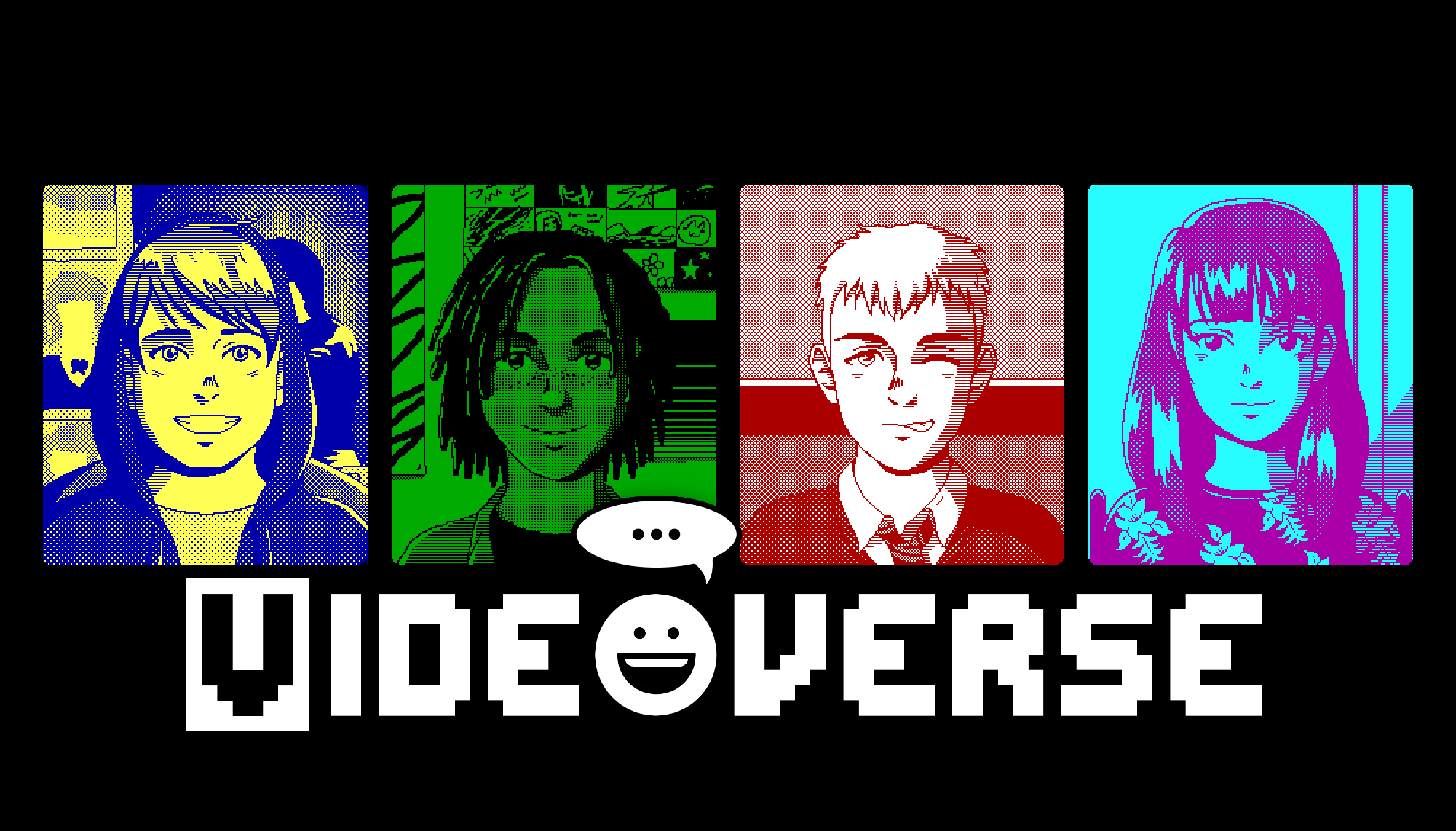Before social networks like Meta (formerly Facebook) and instant messaging platforms like Twitter, among others, took center stage on the internet, the early 2000s offered us a unique glimpse into digital interaction. Platforms like MSN Messenger and MSN Groups became essential pillars of our online life. In this post, we’ll dive into the pre-social media era to explore the digital connections we once had.
The purpose of this essay is to share my experiences with the video game “Videoverse,” developed by kinmoku and released in 2023. This game brought back memories of the old era of MSN Messenger, MSN Groups, and forums from the early 2000s. My goal is to invite others to share their own experiences and recommend “Videoverse” to those who resonate with the pre-social media era and want to relive the digital nostalgia of those times.
Videoverse, developed by Kinmoku, is a narrative adventure game that transports us back to the era of early social networks and online communities of the 2000s. Available since August 7, 2023, on Steam, itch.io, GOG, and Epic, it offers a nostalgic and award-winning experience. Winner of the Critics’ Choice Award at Indie Cup UK 23 and Best Narrative at the Debug Indie Game Awards, Videoverse is a nostalgic homage to retro social networks like MSN Messenger, Miiverse, and online message boards.
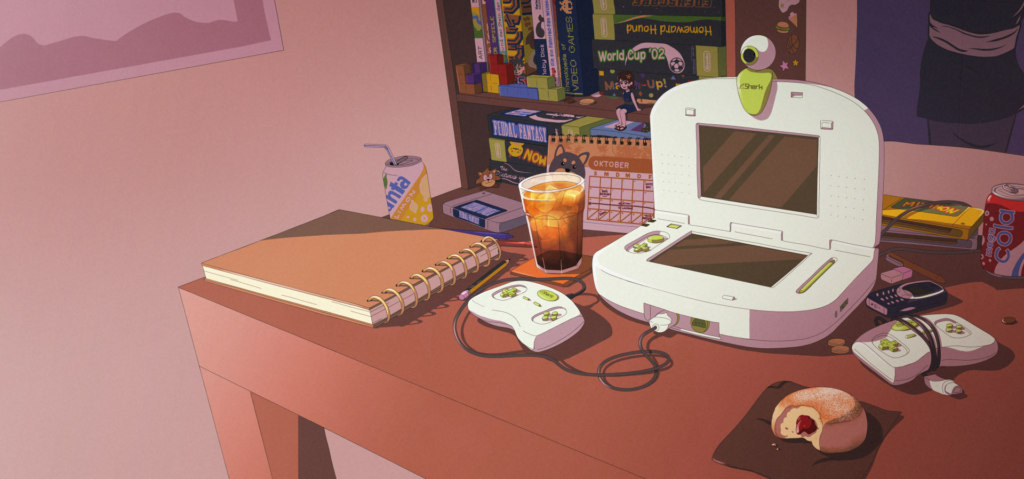
In Videoverse, there’s an artistic community where users share their creations, which reminds me of the MSN groups dedicated to creative individuals. In these groups, we used to share poems, stories, and reflections. I particularly remember an incident where I confronted a user who was causing trouble for other members. I spoke to this person on MSN Messenger, and after our conversation, they publicly apologized and stopped threatening to hack the group.
Videoverse also addresses the theme of dealing with trolls and online harassment, which reminded me of that personal experience. Additionally, the game touches on digital security topics. I remember that, during those times, I had two email accounts: one for close friends and family, and another for online contacts. I always took precautions, never revealing my real location or full name. Even when I began to trust some online friends, I took additional measures, like using my cousin’s address to receive packages.
My experience in MSN Groups, MSN Messenger, and forums was marked by the strong sense of community these platforms created. To join MSN Groups and use MSN Messenger, I needed a Microsoft account, which was Hotmail at that time, then Live, and later Outlook. I recall there was private content in the groups that couldn’t be accessed until becoming a member. What I liked most about MSN Groups was the ability to customize the group’s design as an admin. You could choose a design that matched the group’s theme, like the black and green from the first generation Xbox logo.
MSN Groups, aside from offering visual customization, had features like static pages to add information, links, and images. It was common for graphic designers to create free banners, buttons, and avatars for group users. They also had a bulletin board to post messages and create discussion threads organized by categories or specific topics. This resonated a lot with me while playing Videoverse since each successful interaction, like reporting trolls, unlocked new styles for the forum interface in the game. Remembering this experience brought to mind how I customized my MSN Messenger, both the chat list and each individual conversation with my contacts.
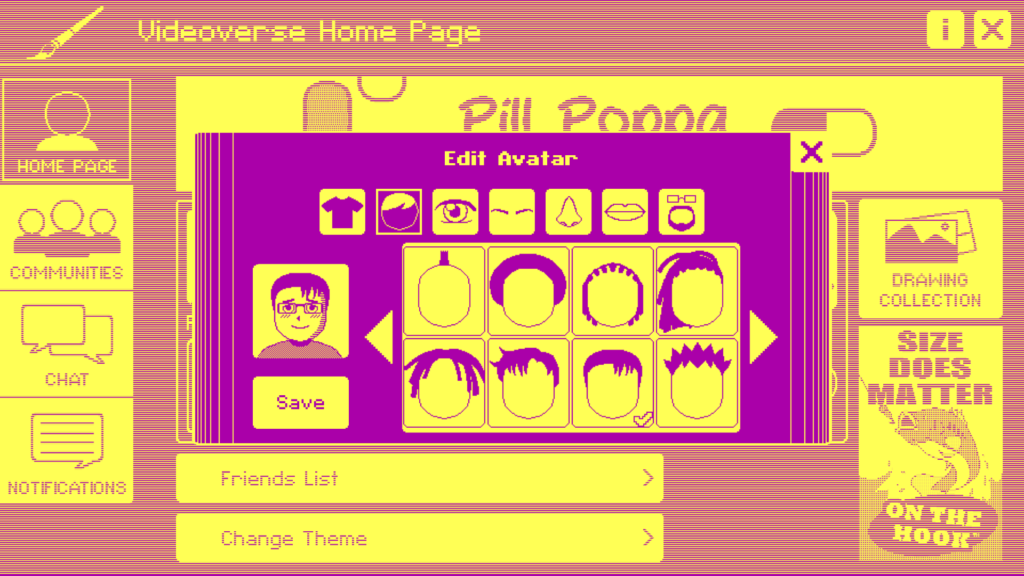
As for MSN Messenger, it was a tool I used to stay in touch with friends and family. I especially liked the feature of being able to edit my username with emojis and symbols, giving a personalized touch to my conversations. Additionally, it was fun to send “winks” and “nudges” to catch the attention of other users during conversations.
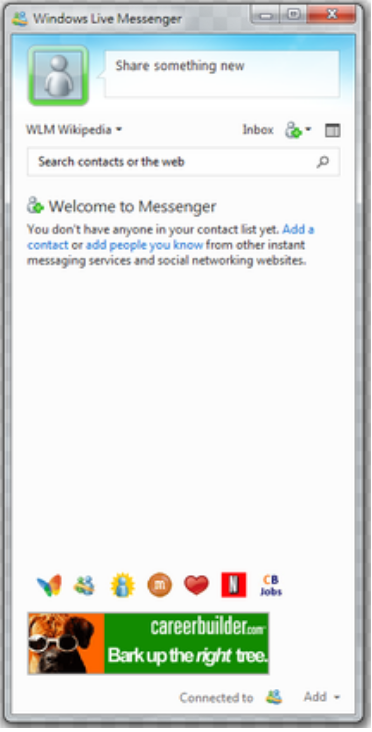
These platforms fostered a sense of belonging and camaraderie. People joined groups for common interests like anime, Japanese culture, music, writing, among others. I remember we used to engage in debates, share art and music, and discuss our interests in forums and groups. This came to mind while playing Videoverse because there were interactions where you wrote posts in the forum talking about certain topics or privately chatting with other characters, which reminded me of when I talked with others about our interests or the community we both belonged to. I also had the experience of dealing with someone causing problems in one of the groups, and this situation further strengthened the sense of community and support among members.
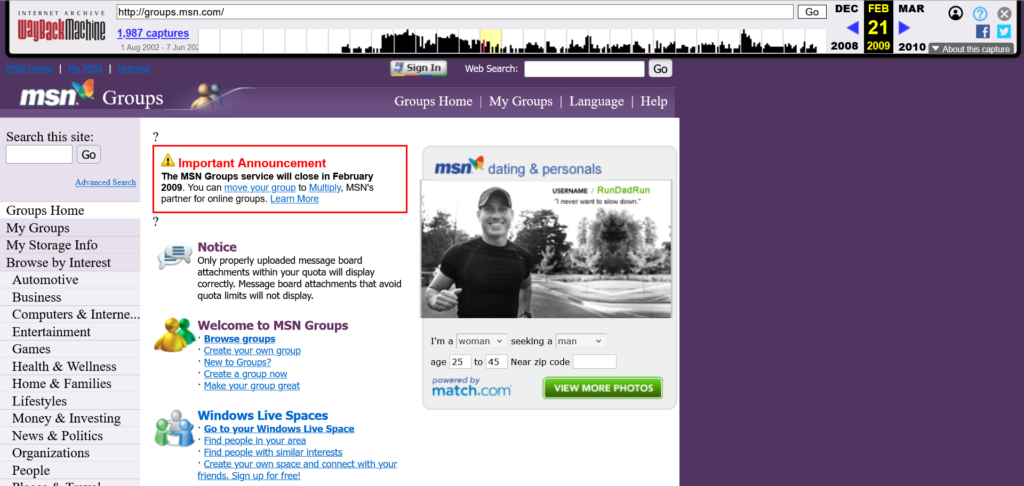
My experience in MSN Groups, MSN Messenger, and forums was very meaningful in terms of community, communication, and interactions. These platforms allowed me to connect with people who shared my interests, express my thoughts and opinions, and build meaningful relationships in a virtual environment. My participation in forums was essential for my digital growth. I started exploring music and web design in an Avril Lavigne forum. Then, I delved into themed forums like Anime, where I made lasting friendships. I also ventured into web administration and created my own literary forum. However, I found a more meaningful space in one of my early blogs on Blogger, where I merged my passion for writing and reading. Through these experiences, I built valuable connections and achieved my goal of having my own website.
In MSN groups and MSN Messenger, we built deep personal relationships by sharing daily challenges and personal joys, discussing topics like anime, Dragon Ball and Inuyasha theories, and participating in role-playing sessions representing our favorite anime characters or an original character created by us. Unlike current social networks, where opinions are often rigid, these platforms valued respectful idea exchange and effective conflict resolution.
Seeing signs of change in the Videoverse game reminded me of when the redesign of Windows Live Messenger breathed new life into our online conversations. With the change in Videoverse, I recalled how with the WLM redesign, we suddenly had a platform that not only allowed us to chat but also keep track of what our friends were doing on social networks like Facebook. It was like having everything in one place, making it easier and more fun to stay connected. It was a change that truly reflected how our online communication was evolving towards something more social and collaborative.
The closure of MSN Messenger and MSN Groups by Microsoft marked a turning point in digital communication. Before this change, the redesign of Windows Live Messenger in 2012 had already introduced features that made it more like a social network. This anticipated the integration with Skype and the subsequent closure of MSN Messenger in April 2013. This closure not only impacted users but also reflected how online communication preferences were evolving towards more integrated and collaborative platforms.
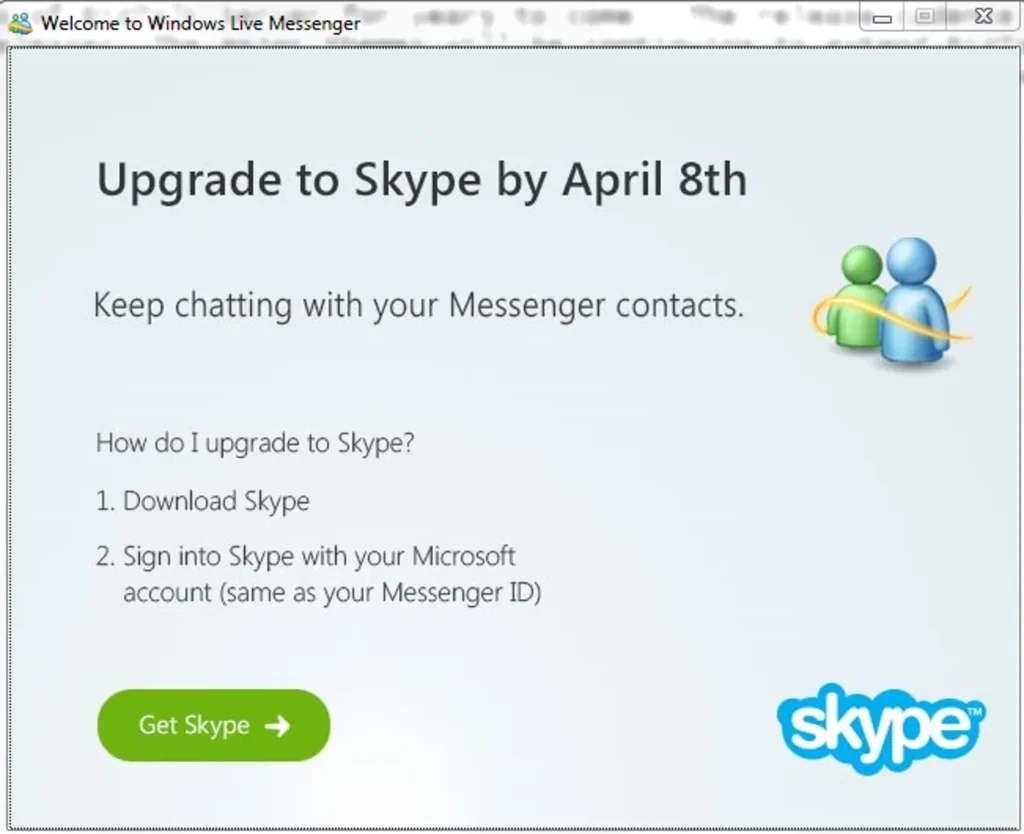
The closure of MSN Groups in 2009 was also significant, marking a transition towards more dynamic and community-centered interaction spaces. This led many users to migrate to other platforms like Discord and WhatsApp in search of maintaining the sense of connection and belonging they had experienced in MSN Messenger and MSN Groups.
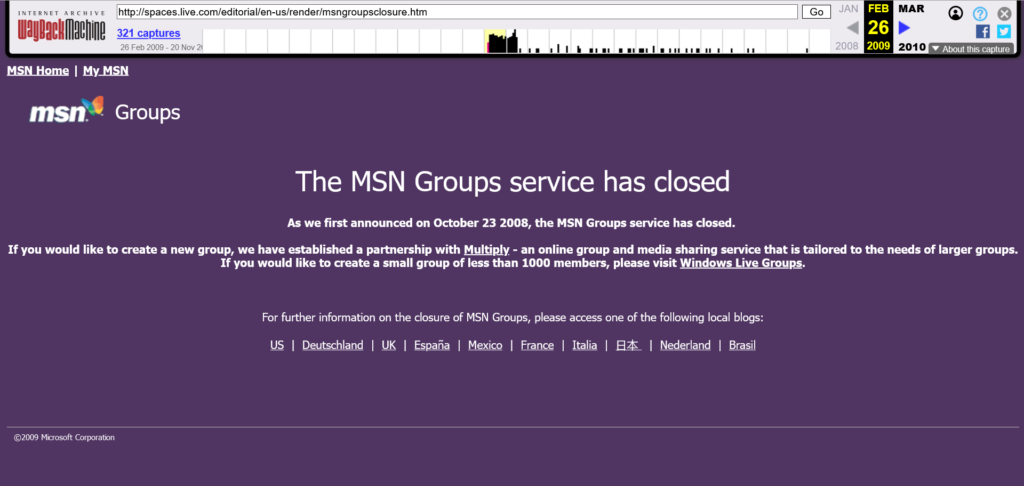
I invite all readers to share their own experiences with platforms like MSN Messenger and MSN Groups, as well as their transitions to other platforms in the post-MSN era. Do you remember those moments of online connection and camaraderie? Also, if you resonate with my nostalgia for the pre-social media era, I recommend exploring Videoverse. It’s a unique experience that can resonate with those seeking to revive the magic of past online interactions.
In conclusion, we have explored the evolution and closure of emblematic platforms like MSN Messenger and MSN Groups, as well as the redesign of Windows Live Messenger. These transitions marked significant milestones in the history of digital communication, reflecting the evolution of preferences and online technologies. I invite readers to share their own experiences and reflections on these changes, as each of us has witnessed this transformation in how we digitally connect. I hope this essay has sparked nostalgia and connections among readers of different generations, demonstrating the lasting impact of these platforms on our digital culture.
Note: This post was originally written and published in Spanish on June 8, 2024. Read the original Spanish version here.
